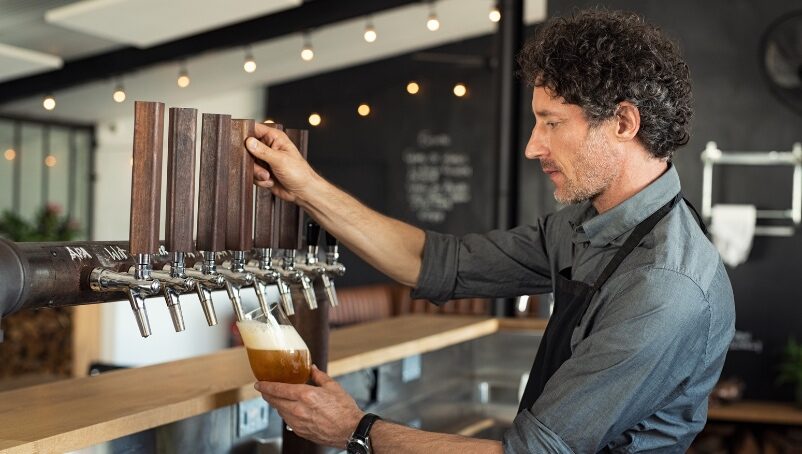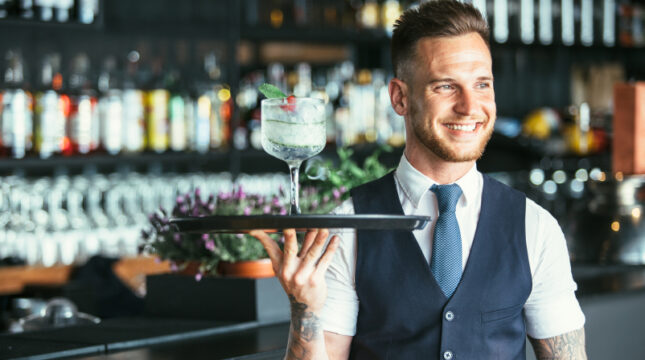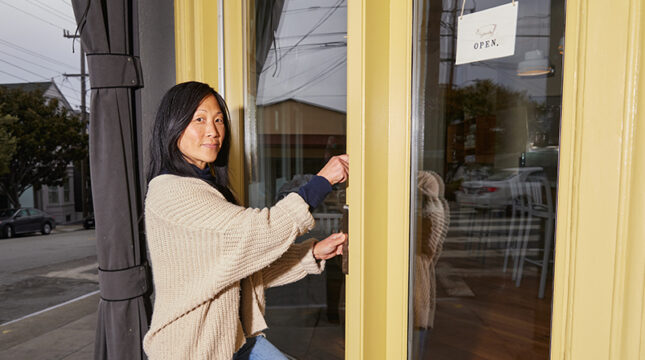Do you need a Washington State liquor license to sell alcohol?
In Washington, instead of applying for a liquor license on its own, business owners looking to sell alcohol must request a special endorsement when applying for their business license. If approved, you’ll receive a liquor license endorsement on your business license.
Note that the Washington State Department of Revenue (DOR) handles business license applications, while the Washington State Liquor and Cannabis Board (WSLCB) takes care of liquor license endorsements.
How to get a liquor license in Washington State
Washington offers several types of liquor licenses depending on your business and the type of alcohol you want to sell. For those in the food service industry, the main types of licenses are a Beer license, a Wine license, a Beer & Wine license, and a Beer, Wine & Spirits license.
If you’re unsure what license you need, the Washington State Department of Revenue (DOR) offers an incredibly helpful tool on its website called the Business Licensing Wizard.
When you’re about three months from your opening date, apply for the license and endorsements you need.
Once the DOR receives your request, it passes along your liquor license application to the WSLCB, which assigns a Licensing Specialist to guide you through the application process and explain the documentation required.
Your Licensing Specialist will contact you within one week of receiving your application and is available throughout the process. They’ll schedule a telephone interview to better understand your business plans, your business partners, and the proposed location. You’ll also discuss licensing requirements specific to your business plans.
After going over your plans, the Licensing Specialist will request documents relating to the startup of your business, which may include:
- Business structure
- Financing/start-up costs
- Lease or purchase agreements
- Floor plans
- Personal/criminal history statement
- Public Posting Notification
While you’re working on gathering the requested documents, the WSLCB will notify the local authority (i.e., mayor or county commission) that you have applied for a liquor license.
In addition, the WSLCB will research the neighborhood for nearby public and private schools and churches. If there are any within 500 feet of your business, they will be notified and have the chance to support or object to your application.
Once you have submitted the required documents, your Licensing Specialist will review them to ensure your application meets all licensing requirements. At this point, they will request that you complete an online briefing on liquor laws and submit photos of the premises.
If your complete documentation has been received and approved by the WSLCB and there are no outstanding issues, you will receive an approval letter. This letter serves as your 30-day liquor license until you receive your Master Business License with the liquor endorsement from the Department of Revenue.
From the time you submit your application, it takes approximately 60 days for the DOR and WSLCB to complete their investigations and issue a business license with endorsements.
The state of Washington asks that you apply for any needed licenses or endorsements 90 days before your business’ opening date to allow adequate time to process your request. If you apply much further out, the DOR may send your application back and have you resubmit closer to your opening date.
How much is a liquor license in Washington State?
A business license from the DOR costs $90. The liquor endorsement cost varies depending on the type of beverages you plan to sell and the setup of your establishment.
- Beer: $221
- Wine: $221
- Beer and wine: $442
If you’d like to serve spirits, you’ll need a Spirits, Beer & Wine license. The price tag depends on your level of service and dining area.
- Service bar only: $1,105
- 50% or more dedicated dining area: $1,768
- Less than 50% dedicated dining area: $2,210
In addition, your local city or county may have additional fees for a business or alcohol license. Visit the Washington DOR for a list of cities that may require endorsements.
Insurance for Washington State bars, restaurants and food and beverage businesses
It takes 90 days to get your new business licensed and endorsed in Washington state; be sure you have the right business insurance ready for opening night.
Liquor liability insurance
With dram shop laws as broad as they are in Washington, liquor liability insurance can help protect your business against the risks of serving alcohol. It can help cover everything from medical bills to court fees should a patron do something foolish and you are found to be responsible.
General liability insurance
Working with the public comes with its own risks — even without alcohol getting involved. General liability insurance could help protect you against the most common incidents like slips, falls or property damage.
Workers’ compensation insurance
Workers’ compensation insurance can make a difference if you or a staff member experiences an injury on the job. This insurance could help cover medical expenses, lost wages and more.
Commercial property insurance
Whether you own or lease your business space, commercial property insurance coverage can help protect losses around the building, your goods, gear and inventory. Should a covered event take place, this can help you get back to business ASAP.
Washington State liquor license requirements
The WSLCB can only issue licenses to businesses ready to sell or manufacture alcohol in roughly three months. That’s why they recommend filing 90 days out from your projected opening date.
While not a requirement, you should have a business plan ready as you will be asked to describe the intent of your business, who the owners are, the costs associated with opening your business, and the source (or sources, if more than one) of funding for your business.
Additionally, it’s essential to check with the city or county for building permits, zoning, and other local area requirements. You can do this on your own or as part of the licensing process on the DOR website.
Washington State liquor license renewal
The WSLCB sends you a notice that your license is up for renewal 45 days before it expires. It also notifies the local authority, allowing them to object to your renewal. As long as they have no objections, you can renew online.
There is a $10 renewal processing fee for a business with any number of endorsements, which costs the same as when first applying:
- Beer: $221
- Wine: $221
- Beer and wine: $442
- Spirits, beer and wine, service bar only: $1,105
- Spirits, beer and wine, 50% or more dedicated dining area: $1,768
- Spirits, beer and wine, Less than 50% dedicated dining area: $2,210
In addition, most city or county licenses are renewed annually and can be paid through the DOR website.
Washington State liquor license liability and dram shop laws
Washington is a dram shop liability state. That means state laws can hold a business liable for selling or serving alcohol to intoxicated individuals who cause injuries or death.
For example, suppose a wedding party visits your restaurant and celebrates with multiple rounds of drinks. Later, one of the party members gets into a car accident that injures the other driver. If the driver from the wedding party was over the legal limit, your company can be sued. It may seem unfair, but your business could be held accountable for the driver’s actions.
Washington law requires that any person who serves, mixes, sells, or supervises the sale of alcohol takes Mandatory Alcohol Server Training (MAST). MAST courses are taught by third-party providers that have been certified by WSLCB.
The MAST permit is good for five years and is not renewable. When it expires, employees need to retake the course for recertification. Employees must have a valid identification and MAST permit available for inspection by law enforcement any time they sell or handle alcohol.
How NEXT helps support Washington State bars, restaurants and food and beverage businesses
NEXT has customized business insurance for Washington business owners. We offer liquor liability insurance alongside our general liability coverage to help protect you and your small business.
It takes about 10 minutes to get a quote, review your coverage options, buy a policy and have your certificate of insurance in hand.
Start a free quote with NEXT.





